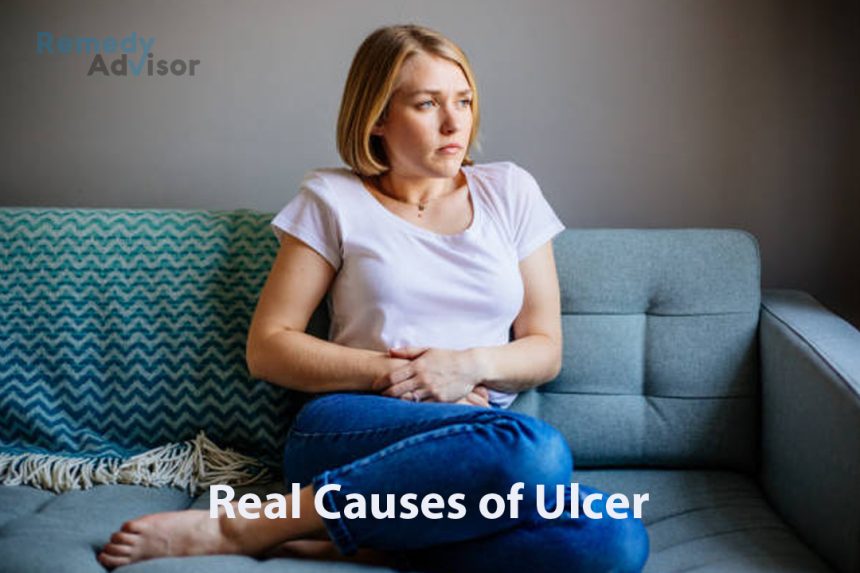When two Australian physician-researchers first suggested that ulcers might be caused by a stomach bug, the medical establishment scoffed.
For decades, doctors had believed that emotional stress prompted the stomach to churn out acid to the point that it literally ate a hole in the stomach lining. Doctors treated the resulting ulcers with antacids and even psychotherapy to help sufferers relax.
Gastroenterologist Barry J. Marshall, MD, and pathologist J. Robin Warren, MD, speculated that a bacterium, later named Helicobacterpylori, or H. pylori, was the real culprit.
In 1984, they published their H. pylori report in the British medical journal The Lancet. The two doctors won the 2005 Nobel Prize in Physiology or Medicine for their discovery.
To learn more about ulcers, we interviewed Dr. Marshall shortly after he won the Nobel Prize…
• What made you persist in an area of research that contradicted conventional medical treatments?
After Dr. Warren completed research showing that about half of the patients who underwent stomach biopsies had bacteria that created inflammation in the stomach lining, it was natural for us to continue investigating the role that the bacteria was playing.
Once the connection with ulcers was made, we saw that antibiotics cured 92% of patients no matter how severe their disease. In fact, we found such a high cure rate versus no “cures” in the standard treatment group that we only needed to treat a small number of patients from the standard group to convince ourselves that we were correct.
• How do you think you’re winning the Nobel Prize for research on H. pylori will affect ulcer treatment?
Very conservative doctors who do not ordinarily look for H. pylori now may be forced to do so, because their patients may have read about our research in news reports on the Nobel Prize.
• Why do some individuals with H. pylori develop ulcers and others don’t?
You catch H. pylori from family members or contaminated water in developing countries.
For an ulcer to develop, the patient must be able to produce high levels of stomach acid. When H. pylori are present, infection-fighting white blood cells attack the bacteria. In doing this, the cells damage the stomach lining, causing inflammation (gastritis) and, years later, an ulcer. Because H. pylori bacteria produce varying levels of toxins, some do not damage the stomach wall enough to cause an ulcer.
• Aren’t some ulcers caused by the use of stomach-irritating painkillers?
Yes. Aside from H. pylori, many aspirin-type drugs, called non-steroidal anti-inflammatory drugs (NSAIDs), usually taken for arthritis, can lead to ulcers. Approximately 40% of ulcers result from NSAID use. The remainder is due to H. pylori.
• Does H. pylori ever cause anything more serious than an ulcer?
Yes. The inflammation produced by H. pylori also can lead to stomach cancer.
• Who should be tested for H. pylori?
Anyone with stomach symptoms, such as pain or burning in the upper stomach, nausea or vomiting. Also, if you have a family history of stomach cancer in a parent or sibling you should be tested. The test itself involves drawing a blood sample to test for antibodies or a breath test.
• If a person tests positive for H. pylori, what’s the best treatment?
The best treatment is acid reduction with proton-pump inhibitors, such as esomeprazole (Nexium), pantoprazole (Protonix) or rabeprazole (AcipHex) combined with an effective antibiotic. Usually taking an antibiotic, such as clarithromycin (Biaxin) with amoxicillin (Amoxil), for 10 to 14 days will work.
• Does eliminating the bacterium pose any risks?
No. However, paradoxically, H. pylori do lower stomach acid levels in some people. In these people, H. pylori protect them somewhat against acid-stimulated diseases in the esophagus, such as gastro esophageal reflux disease (GERD), and, as a result, esophageal cancer. That’s because stomach acid leaking up into the esophagus increases cancer risk in that location. However, this should not stop us from treating H. pylori, because both the bacteria and GERD are easily treatable.
• Some studies have shown that cranberry juice may help fight ulcers. Is this an important discovery?
It is likely that many food products do inhibit H. pylori and, as a result, help ulcers heal. In most cases, however, the effect is not very strong.
• What areas of research do you think hold the most promise for a cure or new treatment for disease?
Many aspects of H. pylori colonization still are not understood. For example, at least 30% of H. pylori genes have no known purpose. Deciphering these genes will provide important insights into the functioning of the gastrointestinal system. My lab at the University of Western Australia is performing molecular studies to discover new useful genes in our H. pylori strains.
• Did you or Dr. Warren have any idea that you might win the Nobel Prize?
We knew immediately that we had made an important discovery. In such an under populated area as Western Australia, however, we could not imagine how many millions of people would benefit. We dreamed of winning the Nobel Prize but always thought that other recipients over the years were worthy laureates.







